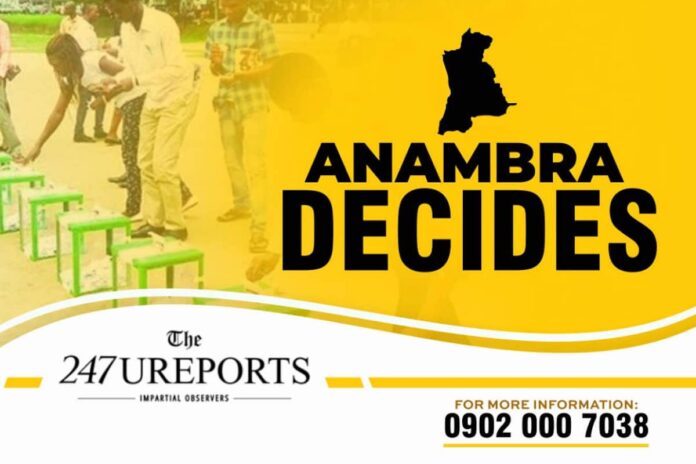By Favour Goodness
Candidates in the imminent Anambra governorship election slated for Nov 6 on Thursday signed a peace accord in Awka, the state captial.
Chairman of the Independent National Electoral Commission (INEC), Prof. Mahmood Yakubu, was present at the ceremony, which was facilitated by the National Peace Committee.
The former military Head of State, General Abdulsalami Abubakar chaired the occasion.
Ifeanyi Uba of the Young Progressives Party (YPP), Andy Uba of the All Progressives Congress and Chukwuma Soludo of the All Progressives Grand Alliance (APGA) were among the signees on Thursday, according to a signature sheet.
Others were Valentine Ozigbo of the Peoples Democratic Party, Godwin Maduka of the Accord Party (AP), Ben Etiaba of the Action Alliance (AA), Nwankwo Chidozie of the African Action Congress (AAC), Onyejegbu Okwudili of the Allied Peoples Movement (APM), Ohajimkpo Emeka of the New Nigeria Peoples Party, Ezenwafor Victor of the National Rescue Movement (NRM), Nnamdi Nwawuo of the People’s Redemption Party (PRP), Uzo Godwin of the Social Democratic Party (SDP), and Okonkwo Francis of the Zenith Labour Party (ZLP).
Anambra, as in much of the South-East, has witnessed several ‘gunmen’ attacks, casting doubts on the safety of the elections.
The proscribed Indigenous People of Biafra (IPOB) has also threatened the sanctity of the election if its leader, Nnamdi Kanu, is not released from detention.
But the Federal Government has beefed up security in the state, pledging a free and fair poll.
On Tuesday, Senate minority leader, Enyinnaya Abaribe urged voters to show up at the polls, noting that the elections will be safe.
What the peace accord demands
The accord is equally binding on the candidate’s political parties and is expected to encourage signees to take proactive steps “towards ensuring a conducive environment for the conduct of a credible electoral process”.
The signees also pledged to “fully abide by the Constitution of the Federal Republic of Nigeria, to respect the rules and regulations as laid down in the Legal Framework for Elections in Nigeria, and to adhere to best international standards”.
Under the accord, the candidates and their parties are expected to “support all institutions of government involved in conducting or securing the elections – in particular INEC and the security forces – to act with professionalism, impartiality and transparency”.
They are also to “encourage state agencies, institutions and public officers not to support partisan interests in any form” and to “encourage their political stalwarts and supporters to desist from propagating fake news and publishing fake results via social media and to ensure uninterrupted and uncompromised freedom of expression and information, both online and offline, throughout the electoral process”.
The accord demands of the signees to “respect that the results can only be announced by INEC, and to accept the outcome of the vote, as long as it is adjudged to be free, fair and credible, devoid of intimidation and conducted in accordance with the provisions of the law”.







